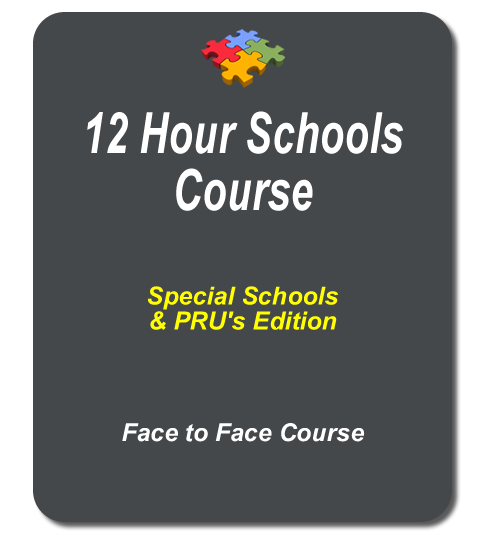Telephone: 01789 653575

The 12-hour +ProActive Approaches Course (Special Schools) includes the following:
See below for course content.
The philosophy behind +ProActive Approaches is one of understanding, empathy and adopting a proactive mindset in relation to behaviours of concern. Through empowering staff members to become inquisitive about behaviour and consider it from a context of either being an unmet need, frustration, anxiety, trauma & attachment issues, environmental factor or communication difficulties, they will be able to understand the behaviours correctly and subsequently develop the correct support plans that will limit the likelihood of behaviour in the first place. This approach will ensure that your service effectively focuses on supporting young people rather than trying to manage them.
Staff teams will be able to correctly understand the behaviours and subsequently develop the correct support plans that will limit the likelihood of behaviour in the first place. This approach will ensure that your school effectively focuses on supporting students rather than trying to manage them.
The +ProActive Approaches courses draw heavily on contemporary research, PBS (Positive Behaviour Support) principles and direct practice experience. All courses will allow you to confidently meet Ofsted requirements.
You can access a training package that provides practical solutions to serious issues and regularly achieves significant increases in not only course participants’ knowledge but, more importantly, their SKILLS & CONFIDENCE.
This is achieved through a blend of the following:

The What
We take learners on a journey to expose them to the complexities of supporting children with SEMH & SEND – we do this by considering the legacy of their lived experiences (ACEs – Adverse Childhood Experiences) and recognising them as real barriers to getting their needs met – a child in crisis who is not getting their needs met, rather than a naughty child.
The Why
We then examine how their lived experiences (including environment and parenting) have shaped them to respond differently or more intensely to the environment around them. We enable your learners to understand brain architecture, neuroscience, and attachment behaviours – and how these can change as they move from childhood to adolescence.
The How
With this understanding in place, we then look at how we can practically apply this knowledge into daily work practice and more importantly into providing positive experiences for children, so they can thrive both socially, emotionally and academically.
The 12-Hour Special Schools Course will give your staff a clear insight into the reasons for the behaviours they see in the classroom. During the course, delegates gain significant benefit from the dynamic nature of the interactive learning, as well as the positive impact on understanding and information retention from the experiential exercises and video case studies.
The modules outlined below can be delivered during INSET days or twilight sessions. The course content is modular and can therefore be delivered in a way that meets the current training needs of your workforce.
The course covers the following:
The What – Impact on development
The Why – The Science behind the outcome of impact
The How – Practical Application of a Trauma and Attachment Lens
Positive Handling and Restrictive Practices
Please Note – We will complete a full behavioural audit with you prior to the course. This will ensure that we teach the correct techniques for your setting, i.e. Primary versus Secondary etc.
FAQs
Q: Is the course Accredited?
A: Yes, this course is fully certificated by BILD Act under the RRN Training Standards.
Q: How long does the course last?
A: 12 Hours. The usual start and finish times are 9.30 am – 4.30 pm, however, this can be flexible depending on your needs. There will be a mid-morning & mid-afternoon break as well as a lunch break. Lunch not provided.
Q: Where are the courses run?
A: Venue supplied by yourselves – we come to you! We will supply you with a detailed venue specification to make a venue easier to source.
Q: Is the course certificated?
A: Yes, all delegates who pass the course will be issued with a certificate as part of the course fee. Your certificates will include a BILD Act logo. Certificates are issued based on competence and not attendance.
Q: Is the theory part of the course just Powerpoint?
A: Absolutely NOT! The course utilises a unique blend of video, case studies, group exercises, personal reflection, experiential exercises to effectively impart the required knowledge and skills in order to empower staff to support children and young people effectively.
Q: How many delegates can attend?
A: 12 people with 1 Trainer, up to 18 people with 2 Trainers. These ratios are in line with the RRN Training Standards.
Q: How much does it cost?
A: Click on the ‘Download Info Pack’ button below to receive your copy of our PDF Info pack (delivered instantly via email). The pack includes full course details and costs.
For more information on the course and for details on pricing and upcoming dates, please click the “Download Info Pack” button below, or email us on
support@proactiveapproaches.co.uk.
Alternatively, if you have unanswered questions or want to discuss if this course is right for you, use the “Book A Call With The Team” button to arrange a convenient time to speak with us.

